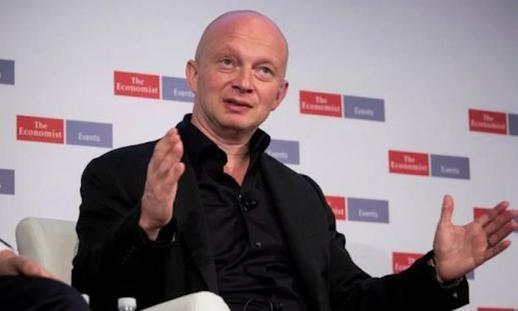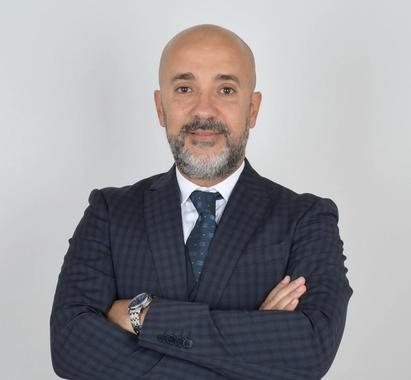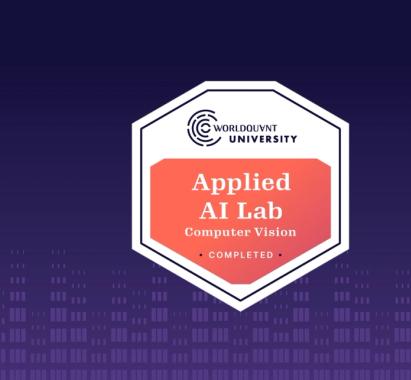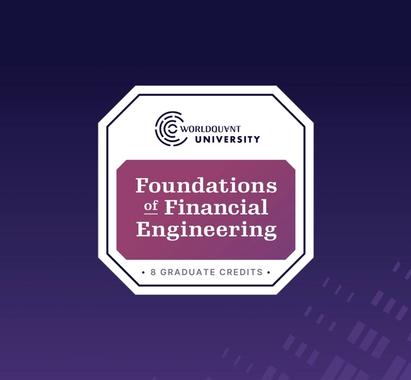Free Market Lessons – an interview with Igor Tulchinsky

Igor Tulchinsky, by his own estimate, held over 20 jobs before founding WorldQuant, a quantitative investment firm with more than 20 offices in 15 countries. He spent time as a venture capitalist, a scientist at AT&T Bell Labs, a video game programmer and even a programmer for hospitals, where his work assisted in prescribing antibiotic dosages for patients. Tulchinsky also received a master’s degree in Computer Science from the University of Texas, which he completed in a record nine months, and an MBA in Finance and Entrepreneurship from The Wharton School.
His diverse academic and professional background was more a product of passion and curiosity than deliberate strategy. “It’s good to spend time planning, but it’s not good to be constrained by it,” Tulchinsky says. “I’ve learned over the course of my career that what works today may not work tomorrow. You have to remain adaptable.”
Through a blend of philanthropic and academic initiatives, Tulchinsky is looking to provide similar opportunities for people around the world – especially those outside of major cities – to learn and pursue their passion as he was able to. Tulchinsky is the Founder of WorldQuant University, which offers an online master’s degree in financial engineering – completely tuition free.
Recently, Tulchinsky spoke with Brunswick about how his search to find talent for his investment firm helped ignite his passion to create education opportunities around the world, and explained how he believes the exponential growth of data will change the way we invest, learn and work.
---
What inspired your focus on education?
Whether it was my time studying and traveling as a student or recruiting for WorldQuant, I saw firsthand that talent tends to be equally distributed throughout the world, while opportunity isn’t.
Whether a person gets access to education is still often determined by factors beyond their control, and many people simply don’t have anywhere to go to learn about the things they’re interested in. And this means, unfortunately, that educational opportunities often remain a privilege, rather than a right. And I wanted to do something about that, because I believe that not only is education a right, but also that it should be free.
Why choose financial engineering as the university’s first program?
Financial engineering is redefining investing today and it is underpinned by skills that I think are relevant, important and applicable to a number of other sectors. It’s also a field I’m familiar with and an area where WorldQuant can bring a lot to the table, especially given our experience and the talented people we have.
But this advanced degree is only the start for WorldQuant University. Our program and platform were designed to be scalable and accommodate potentially more than 100,000 students across multiple subjects. So we’re certainly planning to offer a number of other degrees that move beyond financial engineering and which lend themselves to online courses.
Are there any specific degrees you’re thinking about adding?
We’re looking at anything that’s quantitative or mathematical in nature – data and computer science, for example. And we’re exploring a number of the physical sciences. Perhaps one day we’ll even offer degrees not directly related to math or science.
Have there been any big surprises in your journey so far?
I think many people are quite surprised when they hear that our 200-plus students, within our first year, come from more than 35 countries – Nigeria to China, Kenya to Russia. But for me, the biggest surprise is, in some sense, how not surprising it is to see these students from all corners of the world.
It really underscores the belief that inspired WorldQuant University in the first place: talent is evenly distributed across the world, and what’s been lacking is an opportunity for these students to hone and develop their skills.
Some might question how sustainable your vision of universal access to tuition-free education is. What’s your response to them?
The challenge we’re trying to tackle is massive and clearly can’t be solved by a single initiative, or overnight. I think the way you handle big problems is by solving little ones. Doing what you can. So this is our first step, and we’re making progress, but we know that we can’t do it by ourselves. We’ll need partners.
What sort of partners are you looking for?
Those that have the expertise to help us develop other programs, find talented students and enrich their economic opportunities. And we’re also looking for partnerships to provide support with funding so that we can scale these programs, make them available to students worldwide.
But I don’t want to give the impression that it’s simply a question of money or teachers. It’s ultimately less about how many resources you have and more about how intelligently you use them.
What’s been the most important lesson you’ve learned from creating WorldQuant University?
I’ve learned to not be dissuaded by an idea just because it might sound a bit crazy. That idea very well might be crazy, but it might also have a chance of succeeding and creating some positive change.
The world is changing exponentially, and if you are going to participate, you must do things that at first blush might sound a bit unusual.
Your belief about the disparity between talent and opportunity even shapes how you hire for your firm, WorldQuant, right?
Definitely. In less than 10 years, we’ve grown to more than 550 employees and nearly 400 consultants. We recruit throughout the world. While major cities are an important place to look, they’re not the only place where you’re going to find the right people. It’s not as though New York and London and Singapore have a monopoly on talent.
If you want to reach individuals in rural parts of the world, then you need to be creative in how to go about doing that, which is one of the reasons we created the WorldQuant Challenge.
What is the WorldQuant Challenge?
We provide a platform that allows you to create an algorithm that predicts how stock prices will move, and then you can back-test your algorithm, even on a smartphone or tablet, using real data, the same data that quants use at WorldQuant. Anyone can enter the Challenge, and depending on how they perform, they can potentially join WorldQuant as a consultant in our research program.
One participant from rural China, for example, had an engineering degree, but due to political considerations and to help keep ownership of his family’s land, he had become a farmer. He excelled in the Challenge and, because of that, we ended up offering him a role as a consultant.
In many ways, you’re helping train a new generation of quantitative researchers. Is quantitative investing a good thing for global markets?
I’m trying to help train talented quantitative researchers because I think they – and more broadly, quantitative investing – offer a lot of far-reaching benefits to the global economy. Quantitative researchers who are able to transform trading signals into strategies that drive innovation – that’s a good thing.
Done well, this approach to investing allocates capital efficiently, which, I think we all can agree, is much better than when it is used inefficiently. Intelligently deployed capital drives growth, generates returns, supports innovation.
But also, our aim is to do more than train researchers for financial markets. The skills needed to synthesize vast amounts of data and find patterns are widely applicable and increasingly valuable across a number of industries – and I think they’re only going to become more so.
Are changes in technology making it easier to invest more intelligently?
Computing power, the explosion of data and the usable information embedded in data are all driving technological transformation – to such an extent that some have started calling it the fourth industrial revolution.
To give you a sense of what that means for quantitative investing, in 1995, we had one “alpha,” or mathematical model. Today, we have developed two million more alphas to join that one alpha.
As much as we’re continually investing in hardware and technology, trying to stay on the cutting edge, we’re also looking for people who can operate in this big data environment and extract knowledge and insight from mountains of data. Every company, in some form, must be a data company today if it wants to succeed.
What does a growing reliance on technology mean for investment firms and investors as we think of them today?
Technology has already reshaped investing, and it will, of course, continue to do so. Just think about machine learning, where a computer collects and interprets data, and then uses that data to constantly update an algorithm’s model. The possibilities from that alone are enormous.
But the real value will continue to come from maximizing the relationship between humans and machines – it’s not about humans versus machines. Technology has the potential to free up an investor’s time – anyone’s time – and allow them to focus on more valuable, strategic work.
---
IGOR TULCHINSKY
Igor Tulchinsky founded WorldQuant in 2007, following 12 years as a portfolio manager. Tulchinsky is also the founder of WorldQuant Ventures, an angel investment firm; WorldQuant University, which offers a tuition-free, online master’s degree program in financial engineering; and the WorldQuant Foundation.
This article was featured in the Brunswick Review Generations Issue. Read the full version at www.bit.ly/BrunswickReview.
About the Brunswick Review: The Brunswick Review is a journal of communications and corporate relations which features insights from global business leaders, policymakers, political figures and journalists, as well as Brunswick consultants.



